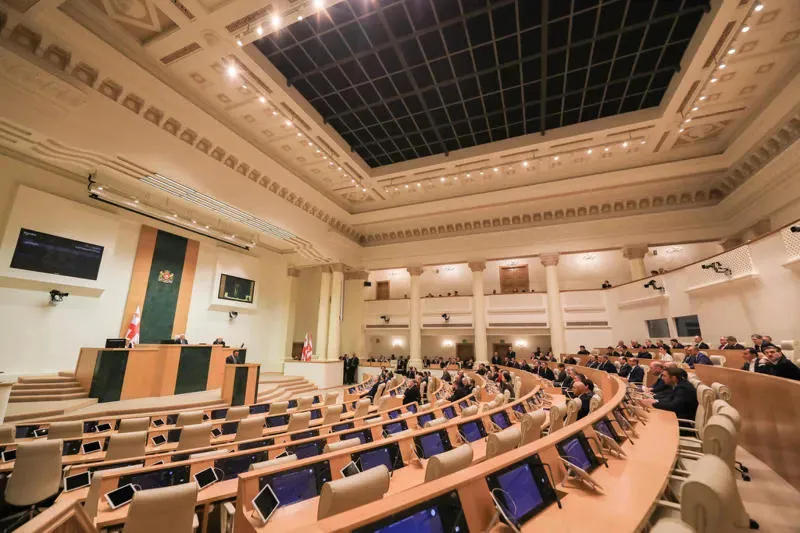The 100-day statute of limitations for filing a lawsuit over defamation will also apply to statements made before the new law came into effect

The 100-day statute of limitations for filing a lawsuit over defamation, as defined by the Law on Freedom of Speech and Expression, will also apply to statements made before the new regulations come into force, provided that the 100-day limitation period has not yet expired.
This change to the draft law was presented to MPs during a plenary session by David Matikashvili, a member of the “Georgian Dream” party, during the first reading of the bill.
Matikashvili emphasized several times during the presentation that the current law fails to strike a proper balance between freedom of speech and protection from defamation.
"In consultation with the Vice Speaker of Parliament, Tea Tsulukiani, and other colleagues, we concluded that it would be appropriate for the legislation to include a transitional provision.
The Law on Freedom of Speech and Expression currently provides that if defamatory or reputation-damaging information is disseminated, a lawsuit must be filed in court within 100 days of the person becoming aware, or reasonably being able to become aware, of such a statement.
The transitional provision will ensure that this new regulation also applies to statements made before the law takes effect, as long as the 100-day limitation period has not yet expired at the time of enactment. After the law takes effect, lawsuits filed within the 100-day window will be governed by the new rules — meaning that if no lawsuit was previously filed, it can now be filed under the updated regulation. In that case, the burden of proof will shift to the publisher of the information, rather than the subject of the statement, as was previously the case. I would like to thank Tea Tsulukiani for her active involvement in the discussion of this issue; she contributed significantly to resolving it," Matikashvili stated during the plenary session.
Georgian Dream is amending the Law on Freedom of Speech and Expression. The ruling majority plans to repeal a number of existing provisions and introduce a new framework for regulating freedom of speech.
Key changes include:
Repealing the provision that placed the burden of proof on the initiator of a restriction and required any unresolved doubt to be interpreted against limiting free speech.
Eliminating the clause that barred courts from using a defendant's refusal to reveal a source or professional secret as the sole basis for a ruling against them in a defamation case.
Under the proposed changes:
In defamation cases, the burden of proof will shift to the defendant. Plaintiffs who claim to have suffered moral or reputational damage will no longer be required to prove the falsehood of the disseminated information. Instead, the defendant will have to prove that their statement did not contain a materially false fact.
The law will introduce content-based regulation of speech, applying to both direct insults and insults made in public spaces.
Another clause to be repealed is the current provision that protects freedom of expression when information pertains to events necessary for public awareness in a democratic society, even if it involves private life or personal data.
The law will also eliminate the qualified privilege for defamation. Specifically, it removes the clause that granted legal protection to individuals who made statements containing materially false facts, provided they:
Took reasonable steps to verify the facts but failed to avoid the error,
Took effective actions to restore the damaged person's reputation,
Aimed to protect legitimate public interest, and the benefit outweighed the harm,
Made the statement with the plaintiff's consent,
Responded proportionately to a prior statement by the plaintiff, or
Produced a fair and accurate report on an issue of public concern.
Deadlines for defamation case procedures will be shortened. The court’s previously allowed one-month period for parties to reach a settlement will be reduced to 10 days.
If the court determines that a correction or retraction is insufficient to compensate for the damage caused by defamation, it may, upon the plaintiff’s request, order the defendant to pay compensation for material or non-material (moral) damages.
These amendments, if adopted, would significantly shift the legal landscape around freedom of expression and defamation in Georgia, increasing the legal risk for speakers and media outlets and reducing protections currently in place.

